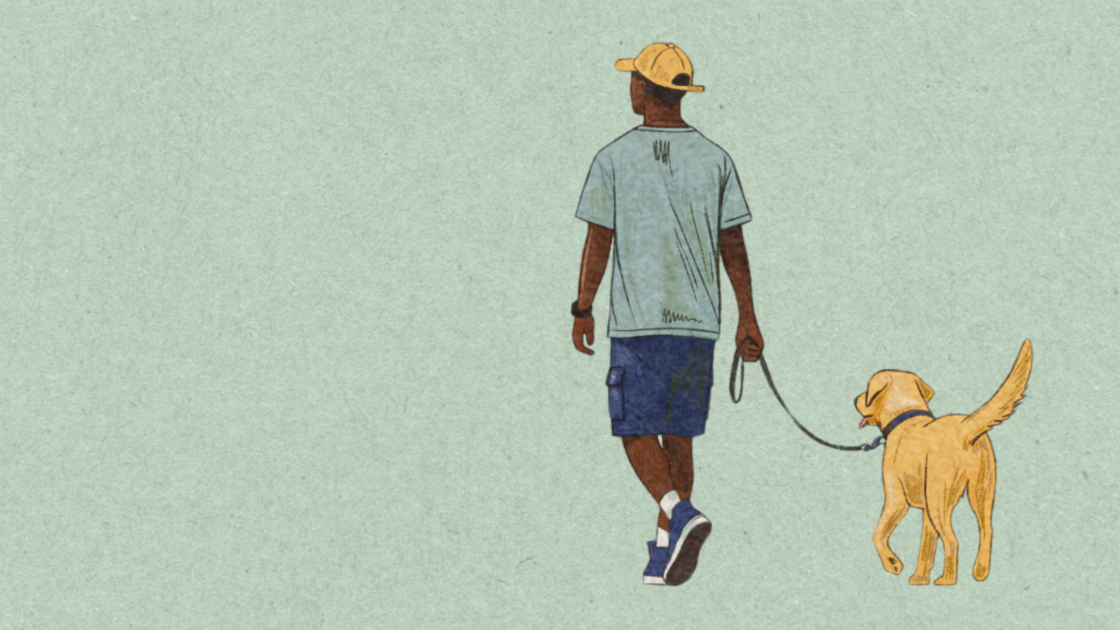Living with unfair masculine body standards
Presly sheds light on the rising number of men living with eating disorders and shares how everyone can challenge body standards for men.

TW // This article references eating disorders. Please look after yourself if you choose to read on. Our text support service details are listed below. While reading please keep in mind that everyone’s experience of eating disorders is different and sharing individual experiences serves to offer support to feel less alone. You can read about other people’s experiences of eating disorders.
While discussions about feminine beauty ideals have been ongoing for decades, the scrutiny and pressure men face to conform to certain standards of attractiveness have received increasing attention.
Defining masculine body standards
Traditional notions of masculine beauty have often centred on characteristics like strength, athleticism, and ruggedness. However, in today’s image-driven culture, the definition of masculine beauty has become more nuanced and demanding.
From flawless skin and chiselled jawlines to well-defined muscles and immaculate grooming, the expectations placed on men to achieve physical perfection are higher than ever before.
In today’s society, the pressure on young men to achieve a muscular physique is undeniable. From social media platforms to Hollywood movies, the portrayal of the ideal masculine body as muscular and toned has become widespread, influencing perceptions of masculinity and self-worth.
The emphasis on physical appearance can overshadow other aspects of a person’s identity, such as intelligence, kindness, and creativity, further highlighting a shallow and narrow definition of masculinity.
How media influences men
One of the main sources of pressure for men to adhere to these standards comes from the media, which includes advertising, television, film, and social media. Images of celebrities and models with seemingly unattainable physiques bombard men from all angles, creating an idealised version of masculinity that many feel compelled to achieve.
As a result, many young men find themselves engaged in a relentless pursuit of gaining muscles, resorting to extreme diets, rigorous workout plans, and even performance-enhancing substances in their quest to attain the perfect physique.
This obsession with achieving an idealised body image can lead to physical and psychological consequences, including eating disorders, body dysmorphia, and low self-esteem.
Eating disorders in young men
For young men, the pressure to conform to societal ideals of muscle definition and athleticism can fuel unhealthy behaviours such as excessive exercise, restrictive eating, and the abuse of performance-enhancing substances.
Young men are increasingly affected by conditions such as anorexia nervosa and bulimia nervosa, as well as other forms of disordered eating such as binge eating disorder and orthorexia. The actual number of young men affected may be higher since there’s usually an underdiagnosis regarding these issues.
One of the contributing factors to the underreporting of eating disorders in young men is the misconception that these illnesses only manifest in those who have a thinner body type. There is also a misconception that eating disorders only affect women when in reality they affect people of all genders.
In reality, individuals of any weight or body type can struggle with disordered eating behaviours. There’s a reluctance to seek help rooted in cultural norms that discourage vulnerability and emotional expression. Many young men may feel ashamed or embarrassed to admit that they are struggling with their relationship with food and body image, leading to feelings of isolation and hopelessness.
We need to recognise and challenge the unrealistic standards of beauty and masculinity
It’s important for healthcare professionals, educators, and the broader community to recognise the signs of eating disorders in young men and provide appropriate support and resources. This includes challenging stereotypes about who can be affected by these illnesses, promoting body neutrality and self-acceptance, and creating safe spaces for young men to seek help without fear of judgment.
We must also address the underlying factors that contribute to the development of eating disorders in young men, such as societal pressure, perfectionism, and low self-esteem. Understanding these underlying factors is essential for prevention and treatment.
Prevention and treatment should involve promoting healthy attitudes toward food and exercise, teaching coping skills for managing stress and negative emotions, media literacy and fostering a supportive environment that values individuals for more than just their physical appearance.
By promoting diversity and acceptance of different body types, we can create a more inclusive environment where young men feel valued and accepted regardless of their physical appearance. If we provide education and support around body image issues, we can help young men develop a healthier relationship with their bodies and promote self-confidence based on more than just their external appearance.
By getting rid of narrow definitions of masculine beauty and embracing diversity in all its forms, we can create a more inclusive and compassionate society where all individuals are valued for who they are, rather than how they look.
If you are looking for non-judgemental, confidential support and information about eating disorders, the Bodywhys helpline is open to anyone and is delivered by a team of trained volunteers. Call 01-2107906 for support.
Feeling overwhelmed and want to talk to someone?
- Get anonymous support 24/7 with our text message support service
- Connect with a trained volunteer who will listen to you, and help you to move forward feeling better
- Whatsapp us now or free-text SPUNOUT to 50808 to begin.
- Find out more about our text message support service
If you are a customer of the 48 or An Post network or cannot get through using the ‘50808’ short code please text HELLO to 086 1800 280 (standard message rates may apply). Some smaller networks do not support short codes like ‘50808’.






